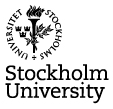Prof. Bromley on a Theory of Economic Institutions
Prof. Bromley will on January 18, 2001, hold the seminar "Sufficient reason; Toward a Theory of Economic Institutions".
Prevailing theories of institutional change impose rational-choice models of the autonomous individual into the realm of collective action. In doing so, these theories constitute a category mistake.
Moreover, while these models fail to explain individual choice, fundamentally because utility maximization is not a reason for action, these individualistic models cannot explain collective action in the realm of institutional change. The fundamental flaw here is that reigning theories employ the doctrine of mechanical cause rather than the doctrine of sufficient reason.
Individuals and collectives do not act by choosing what is best in terms of “utility." Rather, choice is animated by a process of searching for the best reasons, at the moment, to do X rather than Y.
Theories of institutional change (collective action) will remain incoherent until they admit the doctrine of prospective volition - the human will in action, considering alternative futures, and choosing that which, at the moment, seems better to believe. When we find that which is better to believe, we will have found sufficient reason for action.
About Dr. Bromley
Dr. Bromley is Anderson-Bascom Professor of Applied Economics at the University of Wisconsin-Madison. He has written extensively on institutional economics, environmental economics, and economic development.
Dr. Bromley has written and edited ten books, the most recent of which are: Economic Interests and Institutions: The Conceptual Foundations of Public Policy (Blackwell, 1989); Environment and Economy: Property Rights and Public Policy (Blackwell, 1991); Making the Commons Work: Theory, Practice, and Policy (ICS Press, 1992); The Handbook of Environmental Economics (Blackwell, 1995); and Sustaining Development: Environmental Resources in Developing Countries (Elgar, 1999).
Time and place
Place: Linné Room, the Royal Swedish Academy of Sciences Lilla Frescativägen 4, Stockholm
Vacancies | Contact | Environmental policy | Cookies
Stockholm Resilience Centre
Stockholm University, Kräftriket 2B | Phone: +46 8 674 70 70 | info@stockholmresilience.su.se
Organisation number: 202100-3062 | VAT No: SE202100306201


